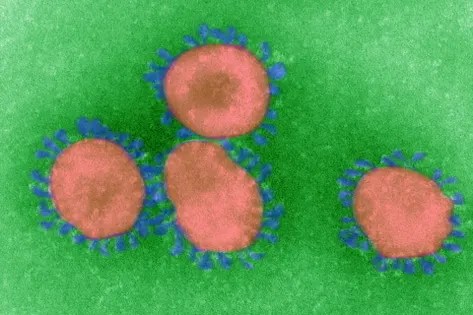3 U.S. Airports Will Start Screening For New Coronavirus From China

- Coronavirus viewed from under a microscope.
Topline: A new coronavirus related to both the common cold and SARS—which originated in China and has killed two people and sickened 45 others—has the Centers For Disease Control (CDC) deploying officials to screen travelers arriving at three major U.S. airports, with other health organizations issuing guidance.
- The New York Times and the Washington Post reported Friday that travelers arriving from Wuhan, China (thought to be originator of the new virus), will be screened at New York’s JFK airport, as well as California’s San Francisco and Los Angeles airports.
- Symptoms could include fever, cough and breathing difficulties, while more advanced cases could lead to pneumonia, kidney failure and even death, though according to the Post, health officials are still working to understand the virus’ specific symptoms and how infected patients present with it.
- Just two cases have been identified outside of China, with one each in Thailand and Japan. There are no known U.S. cases, but National Center for Immunization and Respiratory Diseases director Nancy Messonnier told the Times that an American case is “highly plausible.”
- There’s no hard confirmation from health officials that people can pass the virus to each other, but the cases in Thailand and Japan suggest it’s possible, according to the Post.
- No vaccine exists for the virus, and health officials say it could take years to develop one.
- The World Health Organization (WHO) advises people to protect themselves by maintaining hand and respiratory hygiene and to avoid close contact with others exhibiting signs of respiratory illness, like coughing or sneezing.
What to watch for: The CDC issued guidance for travelers to Wuhan. Visitors should avoid animals and animal markets, along with animal products, to wash hands regularly with soap, and avoid sick people. Any visitors who feel sick should stay home, unless seeking medical care, and should also wash their hands regularly. If a traveler is coughing or sneezing, they should cover their mouth and nose with their sleeve or a tissue.
Crucial quote: “The earlier we detect, the better we can protect,” said CDC director Martin Cetron during a Friday news conference.
Big number: 5,000. That’s how many passengers are expected to be screened at U.S. airports over the next few weeks, according to the Times.
Surprising fact: The word “coronavirus” is named for a family of related viruses, and is not the specific name for this new outbreak. Coronavirus got its name from the crown-like spikes visible on its surface when examined under a microscope. Heath officials are referring to the outbreak as “2019-nCoV.”
Key background: The first novel coronavirus case was reported on December 31 in Wuhan, and according to the Times, thought to be contracted from exposure to animals at a seafood and meat market there—but officials remain unsure. Coronavirus belongs to the same group of viruses as the common cold, Severe Acute Respiratory Syndrome (SARS) and Middle East Respiratory Syndrome (MERS). The 2003 SARS outbreak killed nearly 800 people while infecting 8,000 more, causing widespread panic before being contained. MERS has been present in the Middle East region since 2012 and remains an ongoing threat.
https://www.forbes.com/sites/lisettevoytko/2020/01/17/how-worried-should-we-be-about-the-new-coronavirus-from-china/
